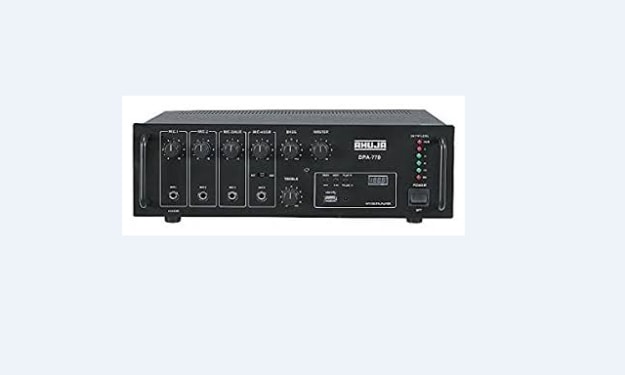"The Importance of Music in Our Society"
"Music is important in our Daily Life"

Art and music are basic human functions. Humankind and art cannot function without one another. We have the burning desire to create, whatever it may be and however tiny or grand. The interaction with sound is unavoidable, either to make it or take pleasure in it. People have always found music significant in their lives, whether for enjoyment in listening, the emotional response, performing, or creating. This is no different for classical music or contemporary concert music. Both musics have immense worth for our society; however, the problem we all know in this field is that this music is little known and hence underappreciated. As a musician and artist it is my responsibility that others can learn to enjoy the art for which I have utter passion.
It goes without saying that in mainstream American culture, classical or concert music is not a huge part of people's lives. There are still stigmas that contribute to this, as well as the practices of the government in the last two decades (declining music education in schools on the local level, resistance to increased NEA funding and less visibility of the arts on the national level; let us hope that the Obama administration can start to reverse these trends). Many people may still believe that classical music is for the rich, older, and the well-educated. Others may feel awkward about going to classical music events because they feel as if they need to act and dress a certain way in order to enter the concert or recital hall. Even more, the pretentiousness and elitism that some artists exhibit is amplified by some television shows, commercials, plays, books, by people of influence and even themselves, which distance musicians from mainstream society. While some of this is true, as with nearly any stereotype, it is not entirely true. With the impression that concert music has on society, the majority decide that it is not "for them" simply because they believe it has no relevance or worth to their lives. This is further compounded by the past government's lack of interest in promoting and supporting the arts, whether it is to fund arts organizations or arts education. Now, the current government give us hope and we have seen evidence of its commitment; but most importantly our American society needs to believe that everyone can find worth and enjoyment in classical/concert music.
The most common way one becomes involved with music is through listening or attending a musical event. Listening at home on a CD player, or in the car, on the computer, or on an iPod can be a very personal and fulfilling experience. Music, as we know, sets a mood and a vibe as we hear it in lounges, bars, parties, or other social events. Also, attending a concert is unique as it offers the excitement of hearing live musicians while providing the sound as it is meant to be heard (if it is acoustic music that is). Where else can one sit with other people, listen, and enjoy music in (relative) silence so that there are no distractions besides the music itself?
Music can also stimulate the mind. There are many things in music, to which one can listen and bring attention. One can be mindful of the melodies or themes, the harmony, the driving or relaxed rhythms, the color of the sounds, the activity of a piece, how the sounds are produced, or how they all relate to one another, all while, possibly figuring out how the composer conceived the piece. Focused and attentive listening is an incredible experience that allows one to be lost in a foreign sound world.
Concert music is the music that is not only pleasing to the ears and mind but also nurturing for the soul. It has been long said that music gives one an emotional response. Characters of varying degree that are found in music, can affect one’s mood. Music can raise someone’s mood, get them excited, or make them calm and relaxed. Music also - and this is important - allows us to feel nearly or possibly all emotions that we experience in our lives. The possibilities are endless.
One of the great things about music in general, and in particular concert music, is that playing it opens up a whole new world of experience that further enhances the mind, physical coordination, and expression. Music lovers, who are also amateur performers, may choose to play in community ensembles (orchestra, band, choir), take lessons, perform with others, compose, and nearly anything else a professional musician may do, while maintaining their regular lives. All of this involves intense physical coordination in performing an instrument alone or with others, while reading musical notation, and adding delicate or strong nuanced changes to the music that only a performer can bring. In general, to an amateur musician, music can provide an escape from everyday life or an alternative means of expressing one's own capabilities. It is an important part of their lives and fills a need or an urge to create music.
In all levels of education, music has immense worth. Students learn many important and necessary values for life as music enhances their mind, their expressive ability, and a whole host of other qualities. Learning to read music is learning a different language with abstract sonic meaning. One not only has to comprehend and decipher unique symbols on a page, they have to know how to execute them and execute them well. Those learning music also learn how to develop a critical ear. With a critical ear, one will know how to practice, rehearse, analyze, and critique music performance. Also, performing music encompasses playing with others, as well as alone, which both necessitate certain skills. Also one can also learn tremendously from studying and analyzing music, composing, reading about music, understanding the history of music and its association with historical and current trends, and knowing what to listen for in music. Students of music – whether it be at the elementary, middle school, high school, collegiate level, or through self-study – learn self-discipline, expression through sound, enhance technical motor skills, further develop problem solving skills, learn how to cooperate and collaborate with others, and learn how to ignite the creative and critical mind. Most importantly, the student can come away understanding that music offers all those qualities in addition to the enjoyment in listening casually or with great attention. Anyone who is educated in music learns these skills whether they know it or not. People who do not make a career in music but have studied it will take these skills and apply it to their everyday lives and career.
In mainstream American society, arts and music are usually looked upon as an extra discipline that it is not essential to the function of our society and culture; however that seems to be changing. The role of arts and music in our society fill a void that we all need in order to enrich ourselves and our culture, they provide alternate infinite experiences, and they also further enhance the skills we use in other disciplines and professions. Recently, the arts have been sneaking into mainstream culture and gaining the attention of viewers, through shows like “So You Think You Can Dance,” or “The Colbert Report” with references to living composers such as Steve Reich or guests from the jazz and classical world (Wynton Marsalis and Alex Ross). Even by watching “American Idol” viewers learn how to become critical of musical performance and share strong musical opinions. There was even a strong response and media attention given to the YouTube Symphony Orchestra contest. Our society is becoming more involved with the arts, if they know it or not. The arts and classical music have been shielded from the public eye for far too long and now that it has been uncovered bit by bit, there is a growing curiosity and even excitement about this world. Artists and those who are passionate about the arts and music must realize what is occurring and continue to showcase what is done in this world to the public through various contemporary methods. People may find the arts and music to be an alternative to mainstream entertainment. The more options we have for people to enrich the lives and minds, the better it is for any society. It is hoped that this trend will lead to a time when classical and concert music find its place in mainstream society, offering all it does to more people.
About the Creator
Iftikhar Ahmed
Freelance writer.






Comments
There are no comments for this story
Be the first to respond and start the conversation.